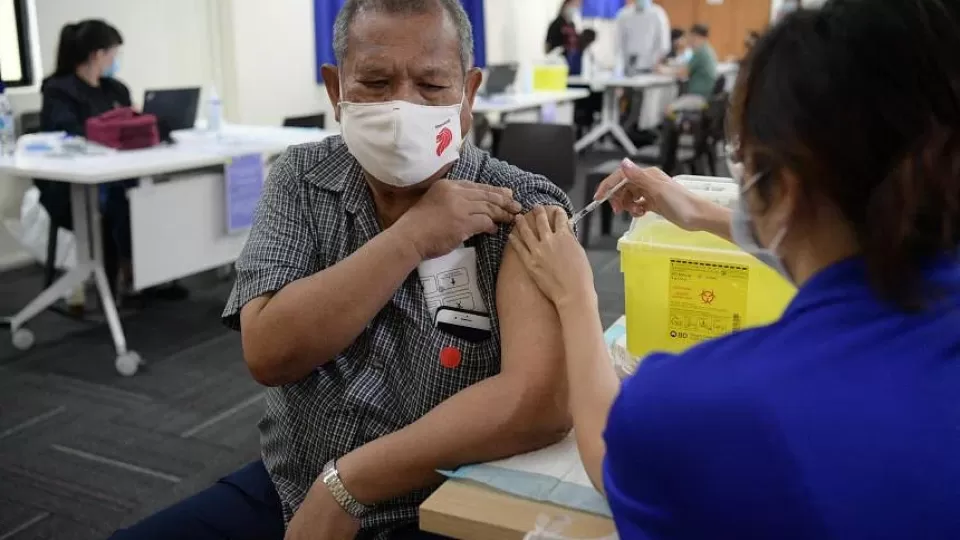January 10, 2023
SINGAPORE – Covid-19 vaccinations are set to become a part of the new normal, and are heading the way of endemic diseases such as the flu, where jabs are encouraged every year, Health Minister Ong Ye Kung said in a ministerial statement in Parliament on Monday.
He was addressing concerns about Singapore’s response to the global Covid-19 situation following China’s reopening on Sunday.
Some countries have imposed curbs on travellers from China as the country rolls back on its zero-Covid policy after three years, resulting in a spike in infection rates.
For Singapore, border measures and vaccination requirements for travellers and work pass holders from China remain unchanged, said the Health Ministry previously.
Mr Ong pointed out that the latest worry about the outbreak in China is part of the new norm, and it could be another region experiencing a major wave the next time.
While Singapore steps up global surveillance and considers border measures whenever it feels threatened, the best defence is to have up-to-date vaccinations.
“Some people are asking when is vaccination going to end? To be very honest, Covid-19 vaccinations have become part of the new norm. For an endemic disease like influenza, vaccinations are encouraged every year, which will help avoid many deaths. Covid-19 is heading the same way,” said Mr Ong.
“The current situation, where we feel threatened by rising infections around us, is a clear illustration (of) why vaccination needs to be an integral part of our ongoing defence against endemic Covid-19,” he added.
As at Dec 31, 2022, about 60 per cent of individuals aged 18 years and above are up to date with their vaccinations.
A person is considered up to date with his Covid-19 vaccination if he has received at least the minimum protection – which is three mRNA or Novavax/Nuvaxovid doses, or four Sinovac-CoronaVac doses – and received an additional booster dose between five months and a year from his last vaccine dose.
Mr Ong said that with the introduction of the bivalent formulations for both Moderna and Pfizer, he hopes more will step forward to get better protection.
In response to a question by Mr Ang Wei Neng (West Coast GRC) on Singapore’s definition of “full vaccination” for travellers, Mr Ong said the Republic is applying the World Health Organisation’s definition, which is less stringent.
“It is not practical to fully align the vaccination definition for people living here and for travellers from all around the world because every country has its own definition. Having said that, the current definition has worked well for us so far,” said Mr Ong.
He added that Singapore will study if there is a need to review the definition based on the spread of the disease.

